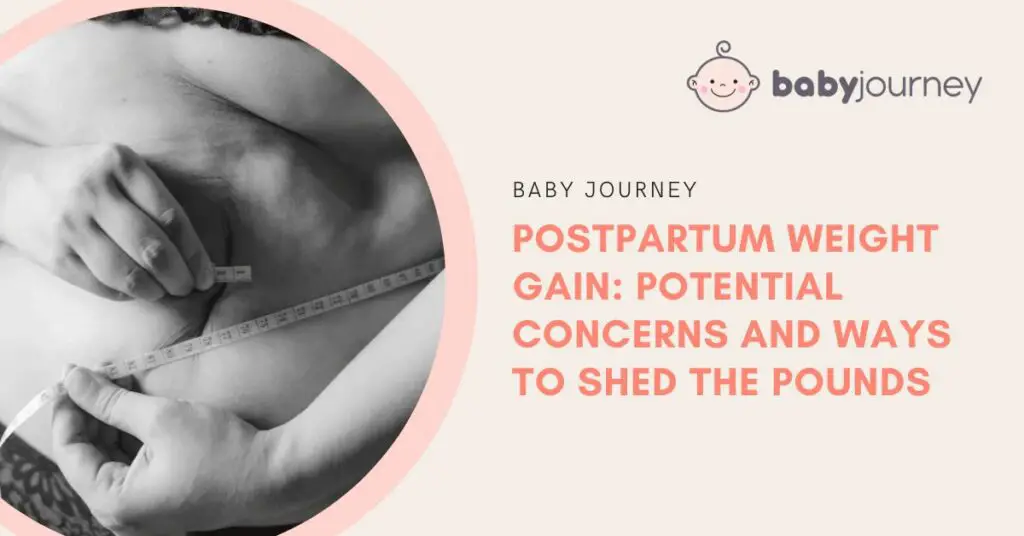Having a baby requires preparation. For one, you may have started eating healthily to support your baby’s growth. You may have also set up a nursery around six months or a few weeks before giving birth, so your baby has a comfortable place to sleep.
While focusing on your baby, you might forget to look after yourself, especially after childbirth. Postpartum issues—including post partum weight gain—are common among new mothers. If you don’t concentrate on yourself at all during this period, you may put your health at risk, preventing you from supporting your baby’s growth.
Thus, if you’ve recently given birth and are experiencing postpartum weight gain—or want to be prepared if it happens—here are the potential concerns you may have and ways to shed the pounds:
Potential Concerns Related to Postpartum Weight Gain

Postpartum thyroiditis
Weight gain after giving birth can be a sign of an underlying condition. One of these is postpartum thyroiditis, a common postpartum problem experienced by 5% of mothers. It is characterized by subclinical autoimmune thyroiditis that is aggravated after pregnancy, causing various types of thyroid dysfunction. Other than weight gain, its other symptoms are fatigue and constipation. If left unaddressed, this condition can become permanent and affect your metabolism.
Diabetes
“Why am I gaining weight after pregnancy?”, you may ask. Your weight gain after pregnancy may also be due to diabetes, especially if you were diabetic while pregnant. While some women’s blood sugar levels return to normal after childbirth, others develop type 2 diabetes. If you don’t lose weight as one way to manage this condition, it may become permanent and lead to other severe conditions, including heart disease and strokes.
Postpartum depression
Postpartum depression (PPD) and postpartum weight gain have been found to be interrelated. Women who experience PPD are more likely to retain their pregnancy weight and experience postpartum weight gain. This is because PPD can lead to unhealthy eating habits, lack of physical activity, and disrupted sleep patterns, all of which can contribute to weight gain. Women with PPD may have higher levels of the stress hormone cortisol, which can lead to increased fat storage and weight gain.
Furthermore, postpartum weight gain can worsen PPD symptoms, leading to a vicious cycle of negative feelings and unhealthy behaviors. Women who experience PPD and postpartum weight gain may benefit from seeking support from healthcare professionals or support groups, engaging in regular exercise, and maintaining a healthy diet.
By taking proactive steps to address both PPD and postpartum weight gain, women can improve their overall well-being and reduce their risk of long-term health problems.
To prevent further weight gain and potential risks, here are a few ways to lose weight:
How to Shed the Pounds

Exercise with caution
Exercising burns extra calories that would otherwise become fat. However, you can’t jump into intense or heavy exercises immediately after childbirth, as your body’s still recovering.
Instead, do safe exercises to lose weight after pregnancy, including head lifts (similar to crunches, except your shoulders don’t leave the floor) and heel slides (sliding one heel out while lying on the floor, then alternating your legs). These won’t tire you out as much, allowing your body to continue recovering from childbirth.
When ready for more moderate exercises, try walking and slow swimming. These will burn more calories since they’re cardio exercises that raise your heart rate.
Still, remember not to push yourself too hard to avoid injuries and stop whenever you feel pain or lightheadedness when exercising to shed your post pregnancy weight gain. Your recovery should be your priority as a mother going through the postpartum period.
Take weight loss medication
While exercising to get rid of excess weight, you may find it difficult to see results due to hormonal imbalances after giving birth. Also, doctors don’t recommend dieting, because you need to consume more food to heal and produce breast milk.
In cases when dieting is not an option and exercising isn’t enough, consider taking weight loss medication—including GLP-1. This hormone triggers extra insulin to lower blood sugar levels, and inhibits glucagon, a hormone that raises blood sugar levels. GLP-1 for weight loss activates the receptors in the body that respond to said hormone. As a result, it curbs appetite and slows stomach emptying. However, keep in mind that this is an injection that is often prescribed weekly. Also, breastfeeding mothers aren’t allowed to take this medication. It’s better to do so after your baby is past breastfeeding. In the meantime, practice healthy habits.
Breastfeeding
Breastfeeding can help mothers lose weight after pregnancy as breastfeeding burns calories, which can help women lose weight. When a mother breastfeeds her child, this releases hormones that help the uterus return to its pre-pregnancy size and shape.
However, the amount of weight loss that a woman experiences while breastfeeding can vary depending on factors such as the duration and frequency of breastfeeding, as well as other lifestyle factors such as diet and exercise. It is also important to note that some women may not experience significant weight loss while breastfeeding, and that weight loss should not be the sole focus of breastfeeding. Rather, the primary benefits of breastfeeding are the health benefits for both mother and baby.
Also read: How to Make Breastmilk Fattier?
Adequate sleep
Adequate sleep is important for weight loss after pregnancy because it can help regulate metabolism and reduce the risk of overeating. Sleep deprivation can lead to overeating and unhealthy food choices, which can contribute to weight gain.
Lack of sleep can disrupt metabolism, leading to decreased energy expenditure and increased fat storage. This is why it is important for mothers to get enough sleep – proper metabolism regulation aside, this can also help reduce stress levels, which can be a contributing factor to postpartum weight gain. Try establishing a regular sleep schedule, limit your intake of alcohol and caffeinated drinks and create a comfortable, relaxing sleep environment so you can get the rest you deserve.
Postpartum weight gain should be addressed with healthy lifestyle habits like exercising and taking medication when it’s safe to do so. No doubt, postpartum weight gain can be a challenging issue for new mothers but we hope you will be inspired enough to learn how to manage your weight gain post partum and shed the excess weight post pregnancy!
What are your thoughts on this? For similar articles, browse our other posts here at Baby Journey.



